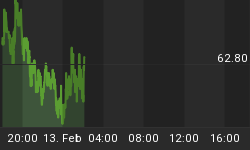This week's crop of data from the UK has analysts revising upward the probability of a rate hike from the Bank of England (BoE) in Q1 2007. The news that inflation expectations are rising along with average wages, while unemployment is falling and retail sales growth remains pretty robust, certainly gives the BoE the ammunition to hike the repo rate again if it feels so inclined. But, while the Monetary Policy Committee (MPC) is likely to remain in a somewhat hawkish frame of mind, a rate hike in February or March is not a done deal. The BoE's own forecast predicted a spike in inflation around the turn of the year - hence the rate hikes in August and November - followed by a marked deceleration in price increases by mid-2007. If pay deals in the closely-watched January wage round are relatively contained, the MPC may decide to watch and wait. After this week's data, however, that looks like a rather big "if."
On Tuesday, we got the news that consumer price inflation in November jumped to an annual rate of 2.7%, its highest level since the data series began a decade ago, and the seventh consecutive month that it has exceeded the BoE's 2.0% target. Retail price inflation - the basis for most wage settlements - hit an eight-year high of 3.9%.

The big news yesterday was on average earnings. Having slipped from a peak of 4.4% in the three months to July to 3.9% in September, the annual increase nudged back upward again in the three months to October, coming in at 4.1%. While this is still below recent peaks, that upward blip will have caught the attention of the members of the MPC.

Yesterday's labor market data included the news that the number of people claiming jobless benefits fell by 5,700 in November, the sharpest one-month drop in nearly two years. The internationally-comparable ILO measure of unemployment for August-October remained at 5.5%, the same rate as in the May-July period.

This morning came the news that retail sales fared better than expected in November, despite some mixed reports from individual retailers and survey evidence suggesting the possibility of a rather soft Christmas season. The Office of National Statistics reported that sales rose 0.3% on the month and 3.2% on the year (+1.0% and +3.9%, respectively, in October). For the inflation hawks on the MPC, the more important number was the retail sales price deflator, which rose 0.3% on the year - the third consecutive rise, and the longest run of increases since April 1999 - which suggests that retailers are increasingly willing to push through price increases.
Finally, the Bank of England's quarterly survey, also released this morning, showed median expectations for the rate of inflation over the coming year rose from 2.5% in August to 2.7% in November, matching the highest level since the survey began six years ago. Some members of the MPC have acknowledged paying more attention to this survey.

So, add it all up and it may be that one more rate hike will be needed to bring inflation back under control over the coming year. The odds of a Q1 2007 rate hike have increased, which is likely to be enough to continue supporting sterling's exchange rate into the New Year.
















